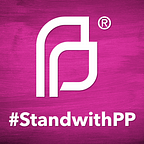Juneteenth Must Be a Day of Action for the Health and Wholeness of Black Women and Girls
By Kadajdra Duckett, Regional Director of Operations and Physicians Assistant, Planned Parenthood of Greater New York
Juneteenth commemorates the day news of the Emancipation Proclamation and freedom from slavery reached enslaved people in Galveston, Texas on June 19, 1865. Juneteenth continues today as a celebration of Black liberation, resilience, and strength, and is honored with community joy and gathering. Juneteenth is a day to honor our ancestors and their hardships and collectively dream of a future where our people are truly free — from violence, fear, systemic injustice, and racism. As a Black woman with over 20 years of experience in the health care field, I know that to honor Juneteenth in its entirety means that we as a society must make this a day of action for the health and wholeness of Black women and girls.
I consider my work to be my ministry. It is a gift to be able to care for people who tend to be in some of the toughest times of their lives, and something I don’t take lightly. Every day, my team and I affirm, care for, support, de-stigmatize, redirect, and improve people’s lives — most of them Black women and girls. In my reflections on the history of Juneteenth, I see the deep connection between the ways Black women were exploited and harmed, their reproductive autonomy stripped away, during the time of slavery — and how that legacy of medical racism continues today. We see this in the horrifying maternal mortality crisis, where Black women are three times more likely to die from pregnancy-related conditions than white women. Black women are disproportionately burdened by chronic conditions such as anemia and cardiovascular disease, a result of structural inequity within and outside our health systems. Physicians routinely diminish our pain, with devastating consequences.
Being a Black woman caring for Black women feels like a small but meaningful way to act against our history of Black women’s bodies being at the mercy of white male doctors for centuries. I always say my relationship to my patients is about so much more than the medicine. I came from where my patients came from. I understand them. For so long, our agency was completely taken away, our bodies not our own. Today, I will take care of you if you’re happy about being pregnant and if you’re not happy about being pregnant. I honor your experience and your decisions. I don’t speak in jargon. I will sit with you until you understand your diagnosis, your risks, your care plan, your follow ups. All Black women and girls should receive care with protocols that honor their experiences and treats them with compassion, respect, and dignity.
I’ve had hundreds of patients in the course of my time as a clinician. However, one comes to mind as a reminder of why what we do is so important. When I was just 24, I had a patient at my first job at a Bronx hospital where we were providing in-clinic abortion services. She had gotten a terrible infection and had to come back to us for treatment. She was very angry, rude to everyone caring for her. She would not let her doctor in the room, but she took a liking to me. I became the only person she would allow to examine her. We developed a connection throughout the treatment of her infection. I treated her with care and listened. One day, months later, I got a phone call. It was her, calling me to “say goodbye”. I was terrified — I knew what she meant, and I could hear it in her voice. I found my supervisor. Somehow, we brought the patient in, did a wellness check, and I was able to bring her into the psych ER. I learned that she had been sexually assaulted and had become HIV positive. It was devastating that she felt this had to mean the end of her life. Years later, I ran into her again. She remembered me. She was doing so much better — happy, thriving, healthy. I knew that I had helped save her life. I will never forget that. I told my mother about it the day that it happened — I remember asking her, why me? And she said, why not you?
This Juneteenth, I remember that patient and what she taught me — that caring for one another is a question of life and death, and that we all have a responsibility for each other. This nation was built on the backs and wombs of Black women — and we deserve nothing less than to be cared for, honored, and treated with the utmost dignity and compassion, both inside and outside the doctor’s office. I do what I do for Black women, with the hope that our children and grandchildren can grow up in a world where their bodies are their own. This Juneteenth and always, I invite you to make that commitment with me.
